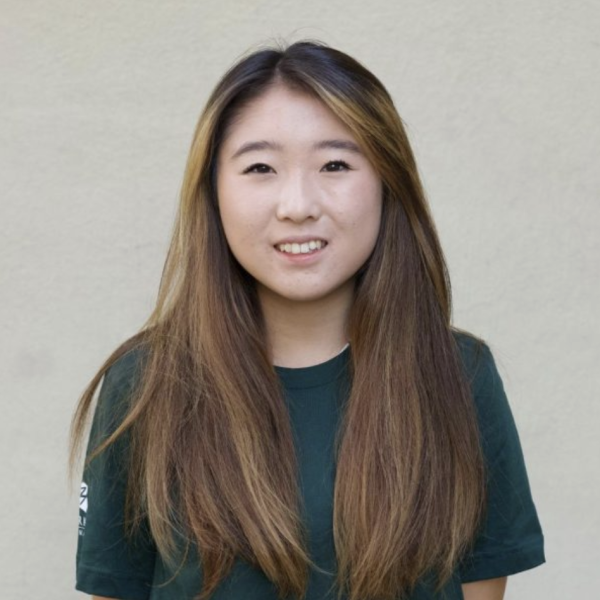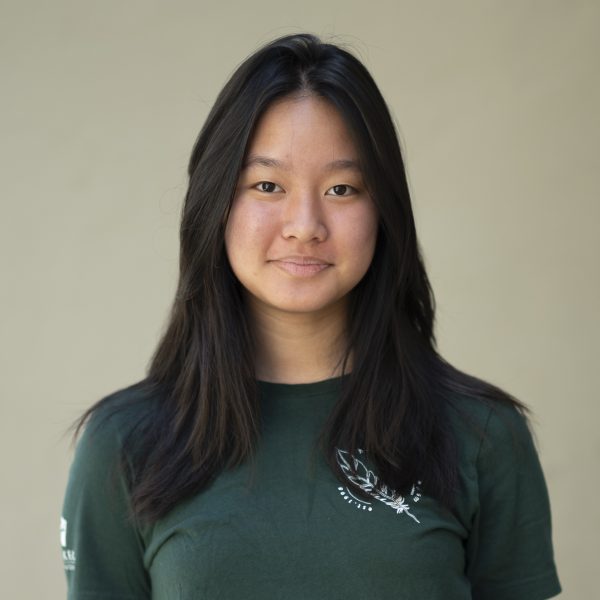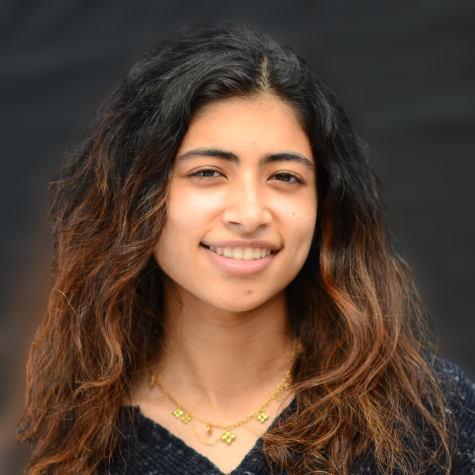Humans of Harker: Connecting with culture
Zeel Thakkar explores her heritage through dance
“My favorite thing is being able to immerse yourself in [dance]. It’s one thing where you can really see improvement if you put in the practice, and if you don’t put in the practice you won’t improve. The ability to sync into repetition and go into the same counts over and over again to see some improvement is really captivating, and always draws me back to it,” Zeel Thakkar (’22) said.
Six months of practice. Eight hours per day. Four hours of performance. Fourteen routines. All of this commitment culminated in Zeel Thakkar’s (‘22) debut performance as a professional dancer. Completing this feat made Zeel the first student in 20 years at her studio to enter the professional space, opening the door to countless opportunities such as dancing in music videos for her.
“My favorite thing is being able to immerse yourself in [dance],” Zeel said. “You can really see improvement if you put in the practice, and if you don’t put in the practice you won’t improve. The ability to sink into repetition and go into the same counts over and over again to see some improvement is really captivating and always draws me back to it.”
In addition to teaching her the importance of hard work, dance has become an integral part of Zeel’s life for its cultural element.
“I started looking at [dance] differently in freshman year, and I realized dance was the only thing keeping me connected to my culture, and I fell in love with it,” Zeel said. “It was love at second sight.”
Like dance, Zeel’s family has grounded her and connected her with her culture throughout high school. She maintains close relations with her cousins, particularly with her oldest cousin who moved to California when she was in third grade.
“[My oldest cousin has] taught me about family values and traditions, which I later brought into my interest in dance,” Zeel said. “Being close with family and people that support you in life is really important.”
The unique nature of how the tradition of dance passes down from teacher to student in her culture gave Zeel a new perspective on learning and knowledge, which extended outside the realm of performance.
“Dance is an oral tradition, which means it’s passed down from teacher to student to teacher to student, and you can’t find any of that online,” Zeel said. “It helped me value knowledge and learning a lot more, and it’s different from what we’re used to.”
From her experience with dance, Zeel gained an appreciation for diligence, drive and determination, all qualities which have translated to other pursuits. Specifically, she applied lessons from dance to exploring medicine and public health more in depth after developing an initial interest from her high school biology course.
Outside of school, she has pursued her interest in medicine by shadowing an oncologist. Through this experience, she learned that the scope of medicine expands far beyond just science.
“We had one patient who was addicted to heroin and unhoused, so [we had to] navigate those extraneous complications along with medicine itself,” Zeel said. “It was a really difficult decision whether they should install a chemotherapy port when there’s a risk that he would use it for drugs and not follow his cancer treatment.”
Such dilemmas opened her eyes to aspects of the practice of medicine she had previously never considered. In particular, she recognized the issue of healthcare accessibility, which she believes can be alleviated by building trust in the doctor-patient relationship and the system as a whole.
“Especially in a world where so many people don’t trust medicine and science, I think it’s really important to build cultural competency and break language barriers and bridge the gap between doctors and patients to make people feel as secure as possible,” Zeel said.
When it comes to social issues, Zeel is unafraid to voice her opinions. During the summer after her sophomore year, she put together a Black Lives Matter benefit concert featuring her dance skills. Upper school history teacher Mark Janda, who taught Zeel in her sophomore year, noted this quality about her.
“She sees something wrong in the world and she tries to figure out what she can do to help,” Janda said. “I really admire that. She has a phenomenal sense of right and wrong, a phenomenal sense of empathy, and you would be hard-pressed to talk to her for more than 15 minutes without finding that out.”

Vivian Chen (12) is the co-student life editor for the TALON Yearbook, and this is her third year on staff. This year, Vivian hopes to meet new people...

Michelle Wei (12) is a co-managing editor for Humans of Harker, and this is her fourth year on staff. Through her writing, she hopes to explore topics...

Anika Mani (12) is the co-editor-in-chief of the TALON Yearbook, and this is her third year on staff. She enjoys traveling the world, trying out new restaurants...


















![“[Building nerf blasters] became this outlet of creativity for me that hasn't been matched by anything else. The process [of] making a build complete to your desire is such a painstakingly difficult process, but I've had to learn from [the skills needed from] soldering to proper painting. There's so many different options for everything, if you think about it, it exists. The best part is [that] if it doesn't exist, you can build it yourself," Ishaan Parate said.](https://harkeraquila.com/wp-content/uploads/2022/08/DSC_8149-900x604.jpg)




![“When I came into high school, I was ready to be a follower. But DECA was a game changer for me. It helped me overcome my fear of public speaking, and it's played such a major role in who I've become today. To be able to successfully lead a chapter of 150 students, an officer team and be one of the upperclassmen I once really admired is something I'm [really] proud of,” Anvitha Tummala ('21) said.](https://harkeraquila.com/wp-content/uploads/2021/07/Screen-Shot-2021-07-25-at-9.50.05-AM-900x594.png)







![“I think getting up in the morning and having a sense of purpose [is exciting]. I think without a certain amount of drive, life is kind of obsolete and mundane, and I think having that every single day is what makes each day unique and kind of makes life exciting,” Neymika Jain (12) said.](https://harkeraquila.com/wp-content/uploads/2017/06/Screen-Shot-2017-06-03-at-4.54.16-PM.png)








![“My slogan is ‘slow feet, don’t eat, and I’m hungry.’ You need to run fast to get where you are–you aren't going to get those championships if you aren't fast,” Angel Cervantes (12) said. “I want to do well in school on my tests and in track and win championships for my team. I live by that, [and] I can do that anywhere: in the classroom or on the field.”](https://harkeraquila.com/wp-content/uploads/2018/06/DSC5146-900x601.jpg)
![“[Volleyball has] taught me how to fall correctly, and another thing it taught is that you don’t have to be the best at something to be good at it. If you just hit the ball in a smart way, then it still scores points and you’re good at it. You could be a background player and still make a much bigger impact on the team than you would think,” Anya Gert (’20) said.](https://harkeraquila.com/wp-content/uploads/2020/06/AnnaGert_JinTuan_HoHPhotoEdited-600x900.jpeg)

![“I'm not nearly there yet, but [my confidence has] definitely been getting better since I was pretty shy and timid coming into Harker my freshman year. I know that there's a lot of people that are really confident in what they do, and I really admire them. Everyone's so driven and that has really pushed me to kind of try to find my own place in high school and be more confident,” Alyssa Huang (’20) said.](https://harkeraquila.com/wp-content/uploads/2020/06/AlyssaHuang_EmilyChen_HoHPhoto-900x749.jpeg)



!["My favorite thing is being able to immerse yourself in [dance]. It's one thing where you can really see improvement if you put in the practice, and if you don't put in the practice you won't improve. The ability to sync into repetition and go into the same counts over and over again to see some improvement is really captivating, and always draws me back to it," Zeel Thakkar ('22) said.](https://harkeraquila.com/wp-content/uploads/2022/08/DSC_8147-900x596.jpg)